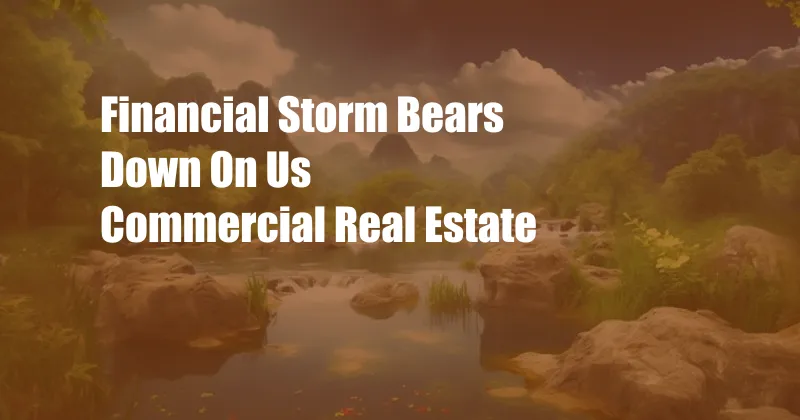
Financial Storm Bears Down on Commercial Real Estate
As the global economy weathers the relentless headwinds of rising inflation and geopolitical turmoil, the once-buoyant commercial real estate market finds itself at a crossroads. A perfect storm of increasing interest rates, diminishing consumer confidence, and dwindling investment appetite threatens to dampen the industry’s growth trajectory and test the resilience of its stakeholders.
The impact of these macroeconomic factors is already evident in several key indicators. Transaction volumes have taken a noticeable dip, with buyers and sellers alike adopting a more cautious approach amid the uncertainty. Additionally, available financing has become increasingly expensive, making it more challenging for investors to acquire and develop properties.
The Rising Tide of Interest Rates
Central banks worldwide are aggressively raising interest rates to combat soaring inflation. This tightening monetary policy has a direct impact on commercial real estate, as higher borrowing costs make it more expensive for investors to finance their ventures. As a result, many projects are being put on hold or even canceled altogether.
The Federal Reserve’s recent rate hikes have been particularly impactful in the United States. The benchmark federal funds rate has been raised by 425 basis points since March 2022, with further increases expected in the coming months. This has led to a significant increase in mortgage rates, making it more difficult for both commercial and residential borrowers to obtain financing.
The Ebbing Consumer Confidence
Diminishing consumer confidence is another major headwind facing the commercial real estate market. As inflation erodes household budgets, consumers are cutting back on discretionary spending, which is impacting businesses, particularly in retail and hospitality sectors.
This decline in consumer spending is having a ripple effect on commercial real estate, as reduced foot traffic and lower sales translate into lower rental income for landlords. Furthermore, the uncertainty surrounding the economic outlook is making businesses hesitant to commit to long-term lease agreements.
The Waning Investment Appetite
The global economic slowdown is also dampening investment appetite for commercial real estate. Investors are becoming more risk-averse, favoring assets that offer stable returns in uncertain times. As a result, capital flows into commercial real estate are expected to diminish in the coming months.
This decline in investment activity will further exacerbate the challenges facing the market. With fewer buyers available, sellers may be forced to lower their asking prices, potentially leading to a downward spiral in property values.
Expert Advice for Navigating the Storm
While the financial storm brewing over the commercial real estate market poses significant challenges, there are steps that stakeholders can take to mitigate its impact.
Investors should focus on acquiring assets in defensive sectors, such as healthcare, education, and industrial properties, which are typically less sensitive to economic downturns. They should also seek out properties with long-term leases and strong tenants, providing stability during uncertain times.
Conclusion
The commercial real estate market is facing a challenging period as the financial storm continues to bear down. Rising interest rates, diminishing consumer confidence, and waning investment appetite are all contributing to a slowdown in the industry. However, by implementing the strategies outlined above, stakeholders can mitigate the risks and position themselves for success when the storm eventually passes.
As a reader, are you interested in learning more about the financial storm affecting commercial real estate? Join the discussion in the comments section below.